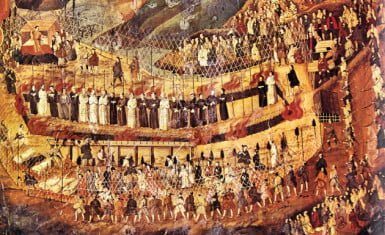Japanese literature has a long history. Since the Chinese writing system was imported, a Japanese style of literature began to develop. From ancient authors, such as Murasaki Shikibu, even the most contemporary like Haruki Murakami, here is the top 10 of the best Japanese novels:
1. Genji’s storyby Murasaki Shikibu (11th century)
The great Proustian novel of the late Heian period. Although the world it describes is ancient, the writing is wonderfully fresh. The feelings of the characters, male and female, are subtly analyzed.
2. Kokoro, by Natsume Sōseki (1914)
Narrated in the first person, the novel is a study in loneliness and betrayal. Published shortly after Joseph Conrad’s Heart of Darkness (which Sōseki read while studying in London), Kokoro explores the nature of evil, and the possibility of the “Selfless.”
3. Rashomon (1915) and In the woods (1922), by Ryūnosuke Akutagawa
Although they are short stories, Akutagawa, who committed suicide when he was 35 years old, never wrote a novel, and his prose style is so impressive as to be left out. There is much mystery in his two stories (made on film by Akira Kurosawa in 1950) to fill a book as long as the Chronicle of the bird that winds the world. A critical confessional mode of writing, Akutagawa implies in his stories that the storytellers are never reliable.
4. There are those who prefer nettlesby Junichiro Tanizaki (1928)
The story of a man who, after losing his passion for his wife, encourages her to have an affair. Despite the tension between the two, the couple refuses to separate, in part to protect their son. Big deviations on dolls, puppets, garlic breath, clove-smelling baths, and Chikamatsu’s love suicides.
5. Snow countryby Yasunari Kawabata (1947)
Snow has such a presence in the story that it almost becomes a character unto itself. All that matters is suppressed or implicated in this ambiguous tale of a Tokyo resident who allows a young geisha from the western mountains to fall in love with him.
6. The Golden Pavilion by Yukio Mishima (1956)
Can a crime of passion be committed against an object? In 1050, a young acolyte sets fire to the Zen temple in Kyoto. Mishima attended the trial, and discovered in the monk’s confession a strange story of beauty and desire, in which a child’s desire to protect what he loves is transformed into an act of destruction.
7. The woman in the dunesby Kobo Abe (1962)
“One day in August a man disappeared.” Thus begins the strange story of an entomologist trapped by the strangest of predators: quicksand. Inside the pit lives an equally voracious woman, who, the trapped man realizes, rewards those who voluntarily renounce their freedom to fight the sands.
8. Silence, by Shusaku Endo (1966)
A beautiful novel in which Endo, a Catholic, imagines the sufferings and hallucinations of two Portuguese missionaries forced by their Japanese captors to renounce their faith. The descriptions of the torture endured by the Jesuit apostates and their converts in the seventeenth century are shocking.
9. Awake, oh young people of the new age!, by Kenzaburo Oe (1983)
In 1963, Oe’s eldest son was born with a deformed skull and severe brain damage. In this sensitive and hopeful book, Oe describes how a man like him comes to terms with his son’s disability through a chance encounter with a self-taught man and the prophetic books of William Blake.

10. Norwegian forest by Haruki Murakami
Murakami’s masterpiece, whose great success led to his exile in Europe and the United States. It’s all here: the inexperienced storyteller, the deja vu and the symbols, peripheral damage, plus The Great Gatsby, fire, Miles Davis, and a dead man in pajamas.

